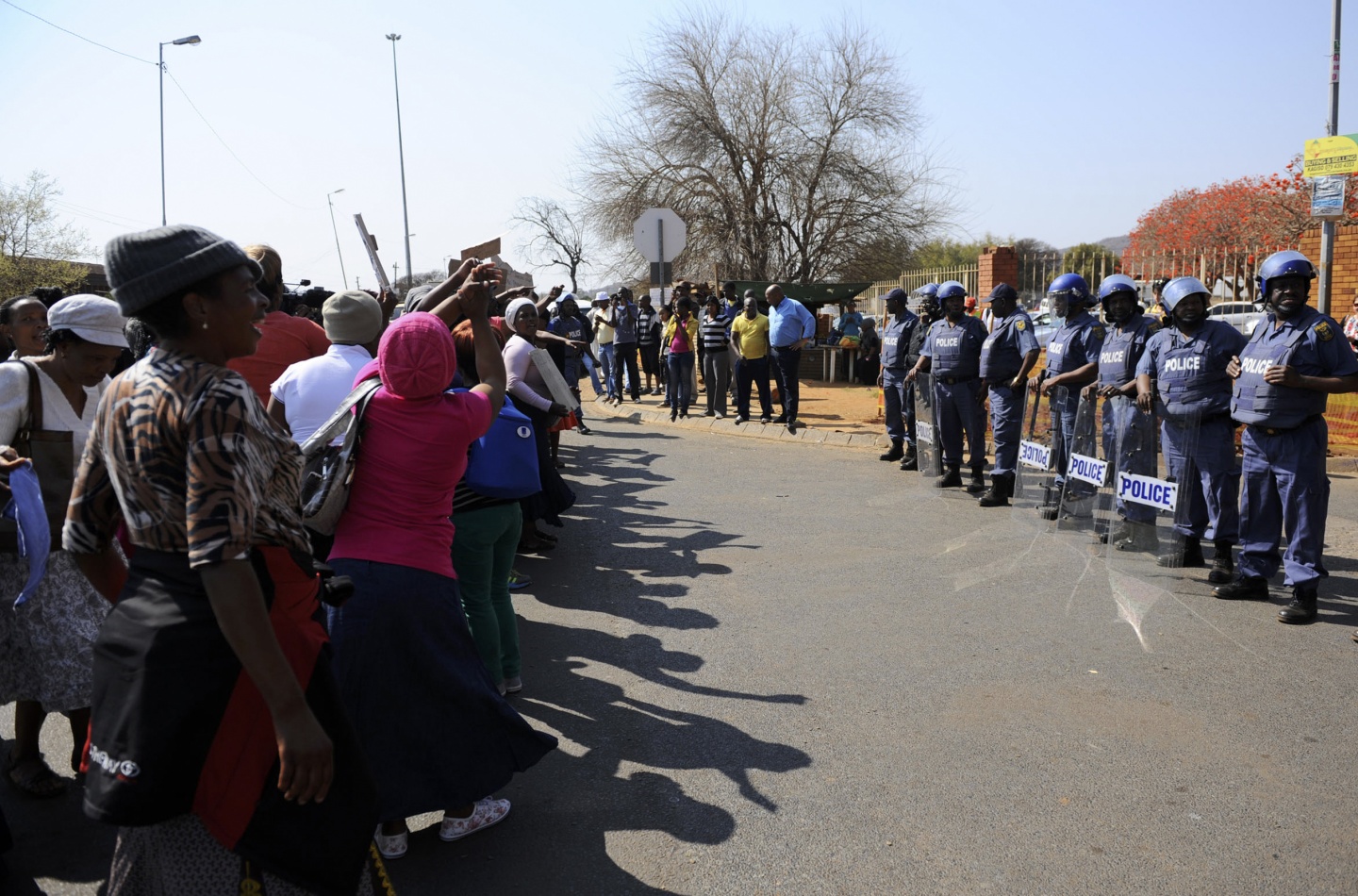30 August, 2012All efforts are now pushing towards a peace accord at the Marikana platinum mine, with 50 negotiators filling the neighbouring Rustenburg town hall under mediation of labour ministry officials.
The widely reported worst violence in South Africa in the post-apartheid era saw police shoot 34 miners at the Marikana mining complex on 16 August after 10 people died in fighting during the strike. This week fewer than 8 per cent of the 28,000 workers at the mine are working, with union leadership’s call for a return to work ignored. Peace talks will continue and hopefully reach agreement tomorrow, 31 August.
Labour Minister Mildred Oliphant met with striking workers on 24 August and facilitated the 28 August peace talks meeting between Lonmin, organized labour, representatives of the striking workers, and churches. The major obstacle to negotiations was the management’s refusal to discuss wage demands before peace was restored to the mine and production restarted, while workers remain insistent that production would not be allowed to restart before their demand for a 300 per cent wage increase was met. The success of the peace talks hinges on the resolution of this question.
The return to work call is also hampered by the demand of the arrested mineworkers that they be granted bail without delay, and whether Lonmin will allow for these workers to return to work.
Advocate Lesego Mmusi representing the arrested mineworkers argued in court against further delay in the bail application for the detained miners, stating that if the government was willing to wait for the commission of inquiry before charging police, detained miners should be awarded the same privilege. It is unclear whether Lonmin will allow the detained miners to return to work. It has since emerged that an autopsy has revealed that many of the murdered workers were shot in the back and hence the call for an independent inquiry.
Calls for an independent inquiry are gaining momentum as many feel that the judicial inquiry does not have a broad enough scope to address root causes of the conflict and does not adequately address socio economic concerns of miners and affected communities. Amongst the issues that these proponents are seeking to address is the issue of contract labour.
In line with a demand from NUM, the Minister of Mineral Resources, Susan Shabangu, has announced that centralized bargaining will be established for the platinum sector. This will address wage disparities for workers doing the same job in different mining companies, and the question of contract labour. About a third of the workforce in the platinum sector are contractor workers who earn by some estimates, about 60 per cent less than permanent workers.
